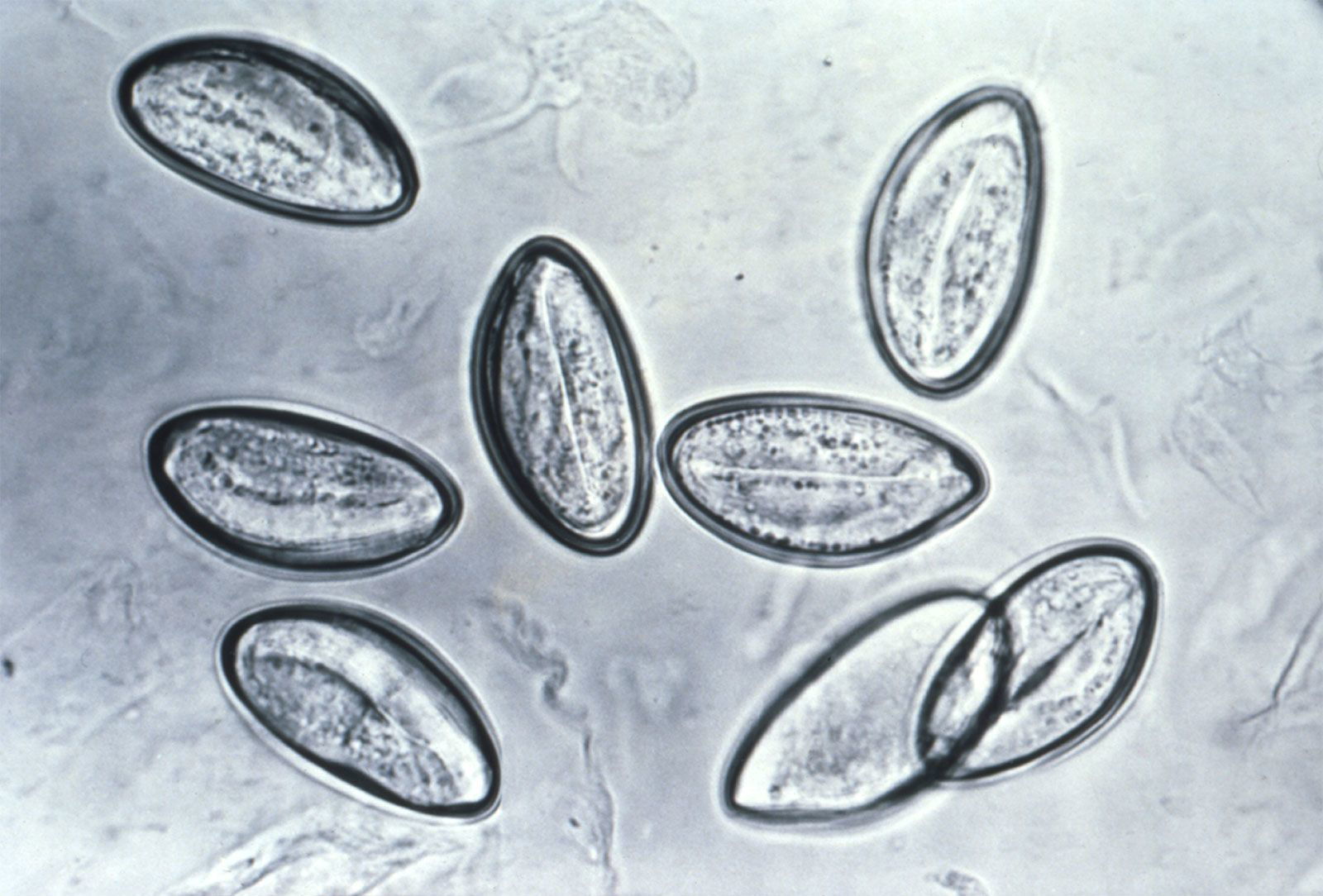Do you need to cleanse your body of parasites? A doctor explains the social media fad

The pinworm is the most common intestinal parasitic worm in the United States.
By Faye Chiu, CNN
(CNN) — Lately, social media feeds have been crawling with testimonials about “parasite cleanses” and DIY worm detoxes. Many people may be unknowingly infected, influencers on TikTok and Instagram claim, and they say they have just the cure with a mix of herbal supplements and enemas.
Kim Rogers, an influencer who calls herself the “Worm Queen,” built a significant following by posting a video of what happened when she did a parasite cleanse that went viral on TikTok, attributing various symptoms such as brain fog and fatigue to an infection. She now sells her own remedies. Even supermodel Heidi Klum said this week that she has started a cleanse with pills that contain clove and papaya seed after viewing information about parasites and worms on Instagram.
How does one catch parasites and worms? What are the symptoms? How does one know that they have a parasitic infection? What is in these cleanses, and do they work? If they don’t, how can people get rid of worms? And should people try them or not?
To help us with these questions, I spoke with CNN wellness expert Dr. Leana Wen, an emergency physician and adjunct associate professor at George Washington University. She previously served as Baltimore’s health commissioner.
CNN: How does one catch parasites and worms?
Dr. Leana Wen: Let me start with a quick definition and clarification. Parasites are organisms that live on or inside a host and feed off it to survive. Many types of parasites affect human health, including external ones such as lice and ticks and internal microscopic parasites like Giardia and Cryptosporidium.
Parasitic worms are a type of internal parasite that live most frequently in the gastrointestinal tract. People typically become infected by ingesting worm eggs or larvae through contaminated food, water or soil. High-risk foods include undercooked pork or beef, raw freshwater fish, and unwashed vegetables and fruits. Not washing hands thoroughly after using the bathroom and before eating can also increase infection risk. In some cases, certain worms can penetrate the skin directly, especially in regions with inadequate sanitation and where it is the norm to walk barefoot outdoors.
In the United States and other high-income countries, such infections are uncommon. Most documented cases occur in travelers returning from regions where parasites are more common, or among people with certain exposures such as contact with infected animals. Worldwide, however, parasitic worm infections are a major global health threat. They affect an estimated 1.5 billion people — about 18% of the global population — primarily in tropical and subtropical regions, according to the World Health Organization.
CNN: What are common types of intestinal parasitic worms that infect humans? What symptoms do they cause?
Wen: Globally, the most common intestinal parasitic worm to cause human infections is a type of roundworm that causes the infection ascariasis. In the United States, it’s pinworm.
Ascariasis is often asymptomatic, meaning the infected person doesn’t show signs of illness. When an infestation causes symptoms, people can experience stomach pain, nausea, vomiting, diarrhea, bloody stools, loss of appetite and fever. Worm eggs can travel into the lungs and cause symptoms such as cough, blood-tinged sputum or shortness of breath.
Pinworm infection can also cause symptoms such as stomach pain, diarrhea and vomiting. Some people also have anal itching that wakes them up from sleep. Others may be asymptomatic.
A variety of other intestinal parasites can cause severe symptoms, especially if left untreated over time. These complications include malnutrition, anemia, impaired growth and development in children, and maternal and infant mortality.
CNN: How does someone know whether they have a parasitic infection? How is it diagnosed?
Wen: A common test is the fecal stool exam that looks for eggs and parasites in the stool. People are typically given specimen cups and instructions on how to collect the stool. Some parasitic infections can be detected through blood tests. Endoscopy and colonoscopy, in which a camera is passed into the gastrointestinal tract, is sometimes used with persistent symptoms and no clear diagnosis through other testing.
CNN: What is in these cleanses promoted by social media influencers and do they work?
Wen: These so-called “cleanses” or “detoxes” claim that they can rid the body of intestinal worms. They often contain a variety of herbs, oils and supplements that are purported to have antiparasitic properties. In many cases, people are supposed to follow a specific diet that reduces high-fat, high-sugar and ultraprocessed food.
I certainly think that a healthy diet full of vegetables, fruits, whole grains and other minimally processed food is a good idea, but such a diet doesn’t get rid of parasites. Additionally, people need to know that supplements such as vitamins and herbs are not regulated like medications, so they don’t have to prove that they work for the marketed purpose before they are sold. Moreover, none of these vitamins, oils, herbs and other supplements are approved by the US Food and Drug Administration as treatments for parasitic infections.
CNN: If these cleanses don’t work, how can people get rid of worms?
Wen: There are a variety of antiparasitic medications approved by the FDA to treat intestinal worm infections. Some of these treatments involve a single dose, meaning all you have to do is take one pill. Others have a longer treatment course, but even then, most treatment courses are for just three days. These treatments are highly effective.
CNN: Is your advice, then, to not try these do-it-yourself cleanses?
Wen: I have three main concerns about these cleanses. First, if someone has symptoms that they think are due to parasitic infections, they need to find out if that’s really the case from a health professional. Someone with fatigue, for example, may actually have a thyroid problem or low iron levels or something else totally unconnected to parasites. Abdominal symptoms can also be due to many different causes, some of which could be related to infectious organisms but many that are not. You don’t want to miss another diagnosis by self-treating in this way.
Second, if what someone has is really a parasitic infection, they need proper treatment. The medications approved by the FDA are easy to use and should be targeted to the specific worm in question.
Some people may ask, well, what’s the harm of trying the cleanse in someone who is asymptomatic? My third concern is that every therapy has risks. If you don’t have symptoms and no reason to be using the treatment, then you have to consider that the risks may outweigh the benefits.
If people insist on trying the cleanses anyway, I recommend that they first speak with their medical provider. Because supplements are not regulated as closely as medicines, people need to be aware of exactly what they are taking.
If they are on prescription medications, they need to make sure there aren’t drug interactions that can be dangerous. And, again, if there are symptoms that made them think they may have parasites, they really need an appropriate diagnosis because trying these influencer-recommended concoctions without medical guidance can lead to misdiagnosis, delayed treatment or even unintentional harm.
The-CNN-Wire
™ & © 2025 Cable News Network, Inc., a Warner Bros. Discovery Company. All rights reserved.



